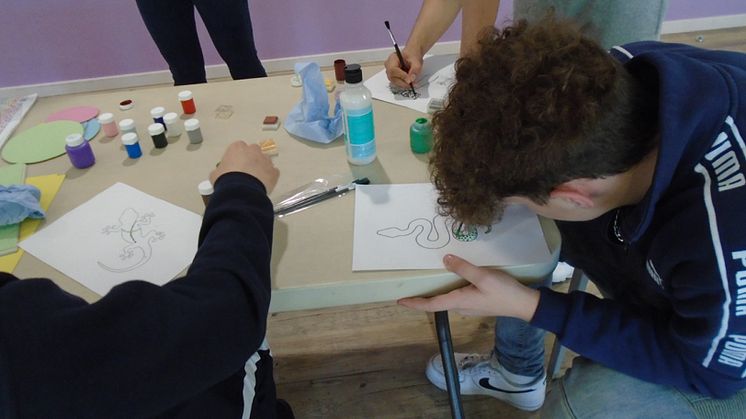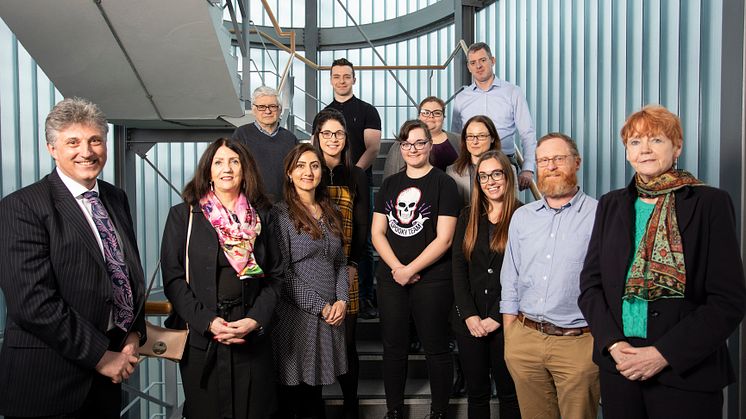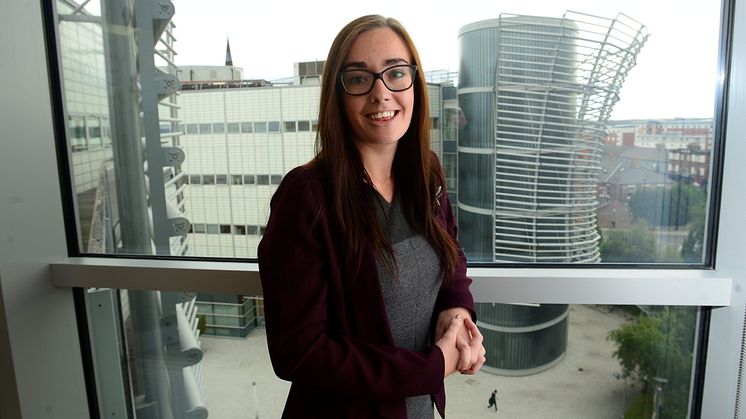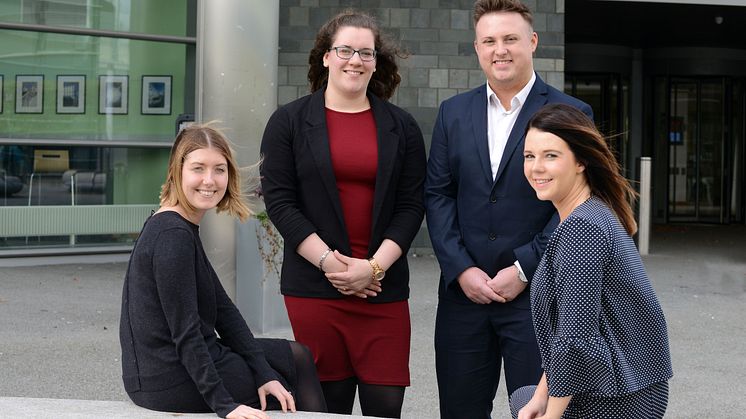
Press release -
Better access to justice needed for victims of gender-based violence
Family justice experts from Northumbria University are calling for changes to the support given by government to victims of gender-based violence, especially during the Covid-19 pandemic.
Following research into the ability of gender-based violence victims to access justice during lockdown, academics from Northumbria Law School say there needs to be an easier way for domestic abuse charities to apply for government funding, and better promotion of the services available to victims.
The call comes ahead of the United Nation’s International Day for the Elimination of Violence against Women this Wednesday – an annual day to raise awareness of violence against women and highlight the scale and true nature of the issue.
Following a survey of 51 different domestic abuse and gender-based violence support services across the UK, researchers Ana Speed, Callum Thomson and Kayliegh Richardson have made a number of recommendations.
They identified that, although the government announced during the first lockdown that they would be making £750m available for frontline charities, and a further £2m specifically for domestic abuse services, complex application forms can make it difficult to access the funding. This is especially true for smaller domestic abuse services which do not have the resources to devote to this.
They also believe a proportion of these funds should be specifically earmarked for organisations supporting victims of gender-based violence, especially given the significant impact the Covid-19 pandemic has had on the demand for such services.
The team are also calling for better refuge and emergency accommodation provision for victims forced to leave their homes to seek protection during isolation – with empty hotel rooms suggested as a short-term solution.
Better communication about the options available to victims of gender-based violence is also needed, setting out the support available to them and making it clear that, despite Covid-19 lockdowns, the police will still attend domestic abuse incidents, some refuges spaces are still available and the courts are still hearing applications for protective injunctions and child arrangements orders.
Senior Law Lecturer Kayliegh Richardson explains: “The restrictions imposed during the pandemic have meant there have been challenges in ensuring victims of gender-based violence are able to access the support available to them.
“Like many other organisations charities have had to find new ways of working, taking some of their services online – but there needs to be better financial and technological support for them to do this effectively.
“The International Day for the Elimination of Violence against Women is a time to raise awareness of these issues and speak out in the hope that changes will be made in the future.”
The research was carried out in April this year, during the UK’s first lockdown, and is more pertinent now than ever given England’s current lockdown and the tighter restrictions in place over the winter months.
A questionnaire devised by the research team was completed by 51 organisations working to support victims of gender-based violence, including those specialising in supporting black and minority ethnic victims, male victims and LGBT victims.
The respondents varied in size and geographical presence, from large, commissioned organisations with a national offering, to small services and those located in rural settings.
The purpose of the study was to examine the impact of Covid-19 on the ability of victims of gender-based violence to access justice.
The main findings of the research were:
- Eleven organisations (21%) reported an increase in calls/reports. Quoted increases ranged from 25% to 120% which is broadly in line with the statistics which have been cited in the media.
- In contrast, 21 of the responding organisations (41%) had experienced a decrease in calls/reports. These organisations did not state that this was because abuse had decreased during lockdown. Instead, they considered that victims faced increased barriers to seeking support even though helplines remained open.
- 84% of the respondents reported providing a telephone helpline or online facility for victims of GBV. Importantly, none of the respondents indicated that they had closed their helplines as a result of Covid-19. In contrast, a number of organisations stated that they had increased the capacity of their helplines by extending the hours/days of service.
- 78.8% of respondents had withdrawn or delayed services. The main services which had been postponed or cancelled were fundraising events, community-based educational activities, face-to-face support groups and therapeutic work for adults, children and young people. Whilst many services were moved online, inevitably this was not possible for all services. Given the appreciation that children can experience ‘short and long term cognitive, behavioural and emotional effects as a result of witnessing domestic abuse’ it is concerning that many of the services which were directed at children and young people had to be withdrawn completely.
- 57.7% of the respondents offered a refuge service. It was reassuring that in all cases, existing occupants were able to remain in the refuge accommodation, however, 26.7% of those respondents had closed their doors to new entrants. This was either as a result of the lockdown measures or because they were already at capacity. Closing refuges reduces the availability of accommodation for victims fleeing abuse during the lockdown. The number of refuge bed spaces in England is currently 30% below the number recommended by the Council of Europe.
- Over 61% of the respondents reported providing additional services. This included social support (providing practical assistance such as food parcels, collecting prescriptions, paying emergency housing costs for families and providing toy boxes to children); community resources and systems change work (developing blogs, preparing information packs for schools and delivering training to individuals and organisations who may come into contact with victims during the lockdown) and supportive counselling (by moving permitted services online, expanding channels of communication including through social media, text chat rooms and live chat services and by extending the availability of these services).
- 78.4% reported receiving no additional funding over and above that already being provided prior to the outbreak to keep their services running. Of those services that had received additional funding in this UK wide study, there is no national or regional consistency evident from the responses, with the responses indicating somewhat of a postcode lottery for funding allocation.
- Several of the respondents identified receiving non-financial support from various channels to help run their services and refuges. There was no evidence that this support had emanated from the government. Instead, references were made to supermarkets providing food for the services’ clients, funders extending funding periods, newspapers offering free/discounted advertising space and donated items of food and equipment.
- 78.4% of the organisations that responded to the survey usually provide support to victims of GBV whilst at court, but only 17 (32.7%) were continuing to provide this support during the outbreak. Of the organisations who continued to provide this service, many raised concerns about the associated delay in criminal trials being heard. Many of the organisations reported assisting victims with the virtual family court process, but there were large discrepancies in their reports of how hearings were now taking place, pointing to a possible inconsistency in approach across the UK.
Topics
Categories
Northumbria is a research-rich, business-focused, professional university with a global reputation for academic excellence. Find out more about us at www.northumbria.ac.uk --- Please contact our Media and Communications team at media.communications@northumbria.ac.uk with any media enquiries or interview requests ---











